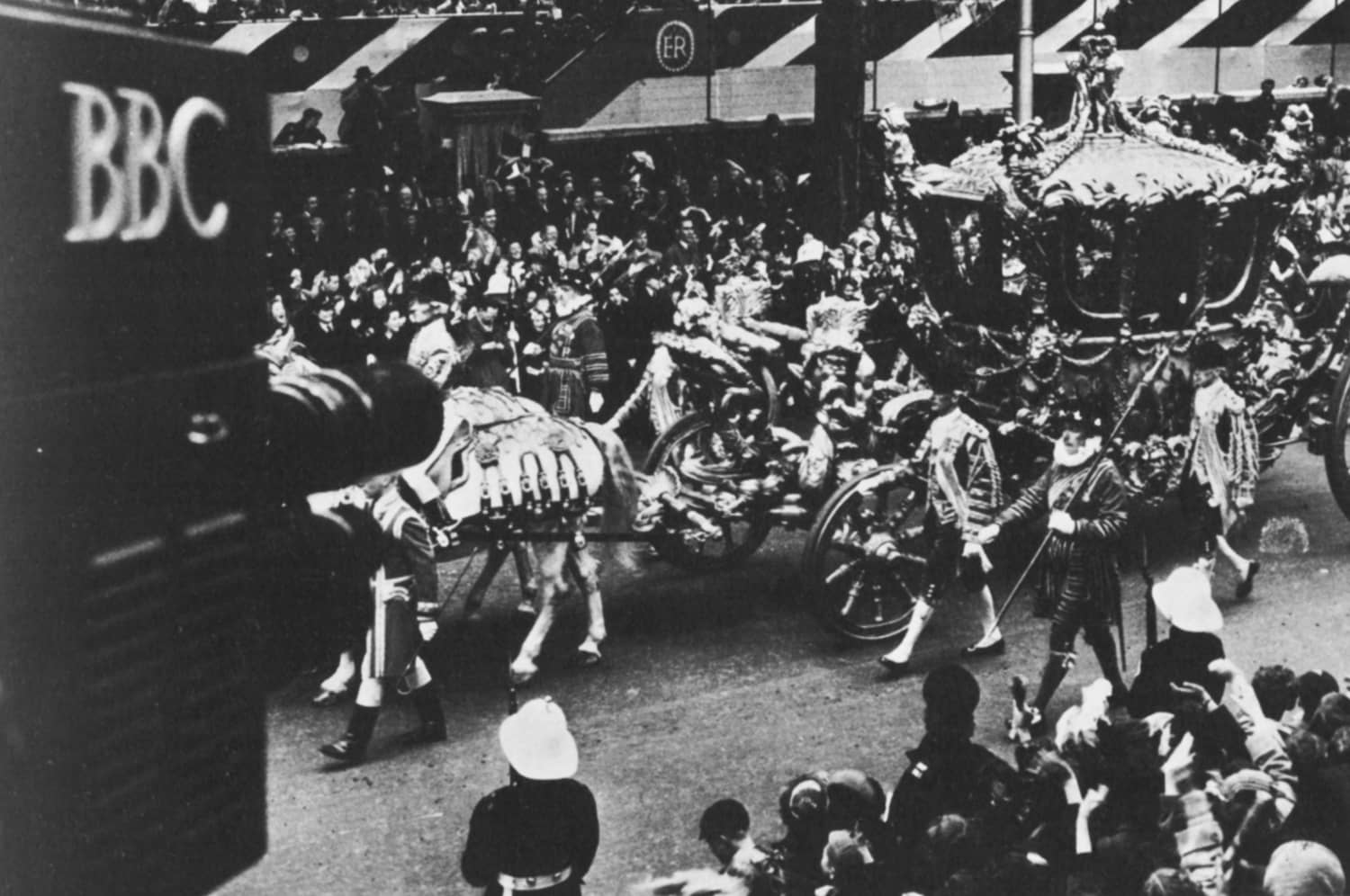Dimbleby thought, and it made him angry, that the relay of his Coronation commentary from the Abbey had been interrupted on one American television magazine programme by a facetious interview with a resident chimpanzee called J. Fred Muggs.
I was the BBC’s chief correspondent in America at the time, and saw the offending programme. It was in fact the live radio commentaries of Howard Marshall and John Snagge that were interrupted, when shortwave reception faltered, for this graceless enterprise. Richard Dimbleby, on the contrary, suddenly achieved transatlantic fame and respect.
The rival American television networks were hotly competing for the best and fastest coverage of the Coronation. The first to get pictures on to the American air would scoop a huge expectant audience. This was, of course, before the development of videotape recording or live transatlantic transmission by satellite.
As soon as the Coronation date was announced the Earl Marshal was asked to estimate at what exact time the Archbishop could be expected to lower the crown on to the Queen’s head. (His forecast, made months ahead, was correct to within one minute.) The American networks made elaborate and secretive arrangements to send their own ace commentators to London and to rush the films and telerecordings up to the moment of crowning back to the United States as fast as possible.
Ed Murrow, then in charge of news for the Columbia Broadcasting System, chartered a Stratocruiser from BOAC, ripped out the seats, installed film processing and editing machines, and arranged to work in this flying laboratory and cutting room so that the film, with his own commentary, would be ready for immediate transmission.
The National Broadcasting Company made similar preparations with another airline and also arranged with the Venezuelan Air Force that on 2 June it would conveniently take delivery of a much faster Canberra bomber ordered from Britain. Of course it would have to stop in America on the way, and could drop off cans of film exclusively for NBC. (In the event that Canberra developed engine trouble after two hours and had to turn back.)
The American Broadcasting Company was at that time a poor third in the television stakes, and could not afford such outlays. It settled for booking a coaxial cable to the nearest point in Canada to pick up whatever the Canadian Broadcasting Corporation showed.
In fact the transatlantic race was won by an RAF Canberra which brought the BBC telerecording to Canada. Thus it was Richard Dimbleby’s Abbey Commentary, relayed by ABC-TV, to which avid United States viewers first switched. The American republic suddenly realised that Britain could not only stage glorious coronations. She also had outstanding television production skill, and an exceptional television commentator.
The week after the Coronation BBC television cameras were present at the Royal School of Needlework Exhibition at St James’s Palace, which the Queen Mother was to visit. Dimbleby began his commentary five minutes before Her Majesty was due to arrive, but, unexpectedly for Royalty, she was late and he had to speak for a further twenty minutes during which he treated viewers to a detailed history of the Royal School. It transpired subsequently that the Queen Mother was watching the programme at Clarence House when it started, and was so enthralled that she left her home rather later than she had planned.
Soon after she arrived at nearby St James’s Palace she saw Dimbleby and made straight for him with a word of greeting and congratulation on his Coronation commentary. The stick microphone in Dimbleby’s hand was live, and viewers heard her say, ‘Good evening…’. Quick-thinking as he bowed to the Queen Mother, Dimbleby held the microphone under the tails of his evening dress to muffle the sound and prevent her private conversation and personal congratulations to him from going out over the air.

